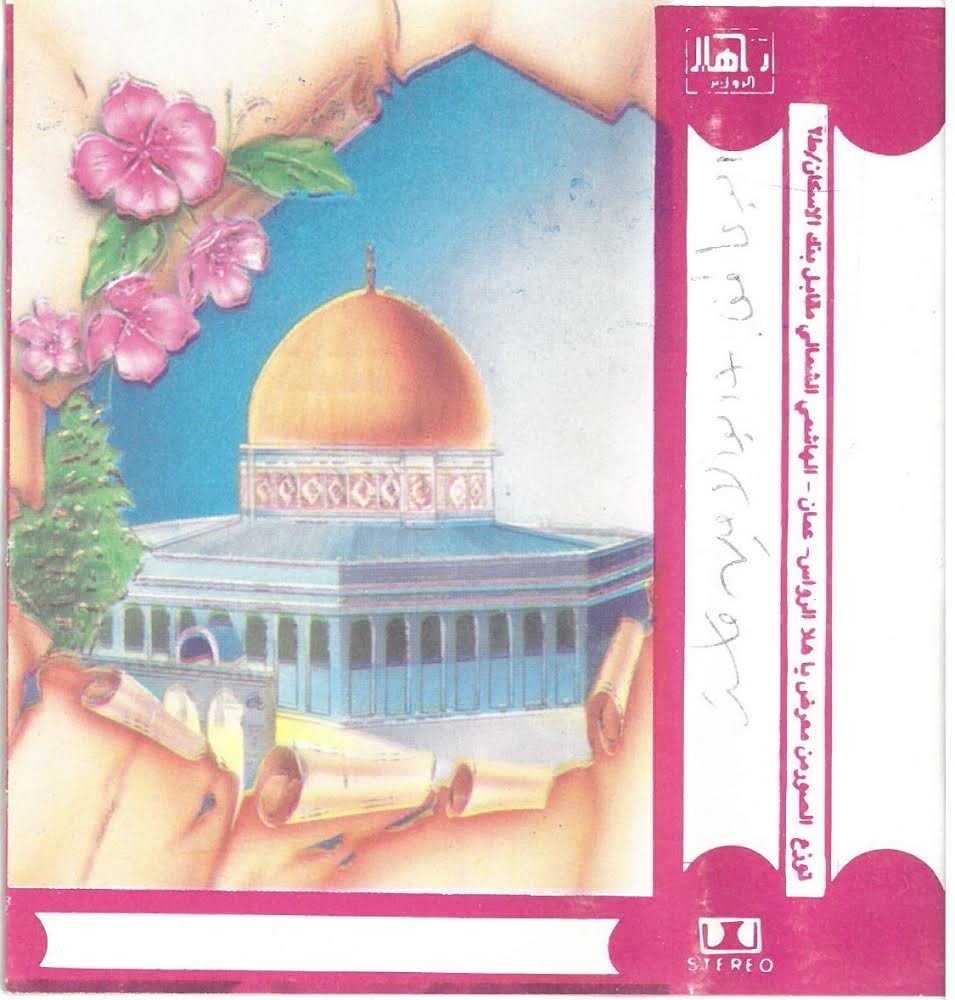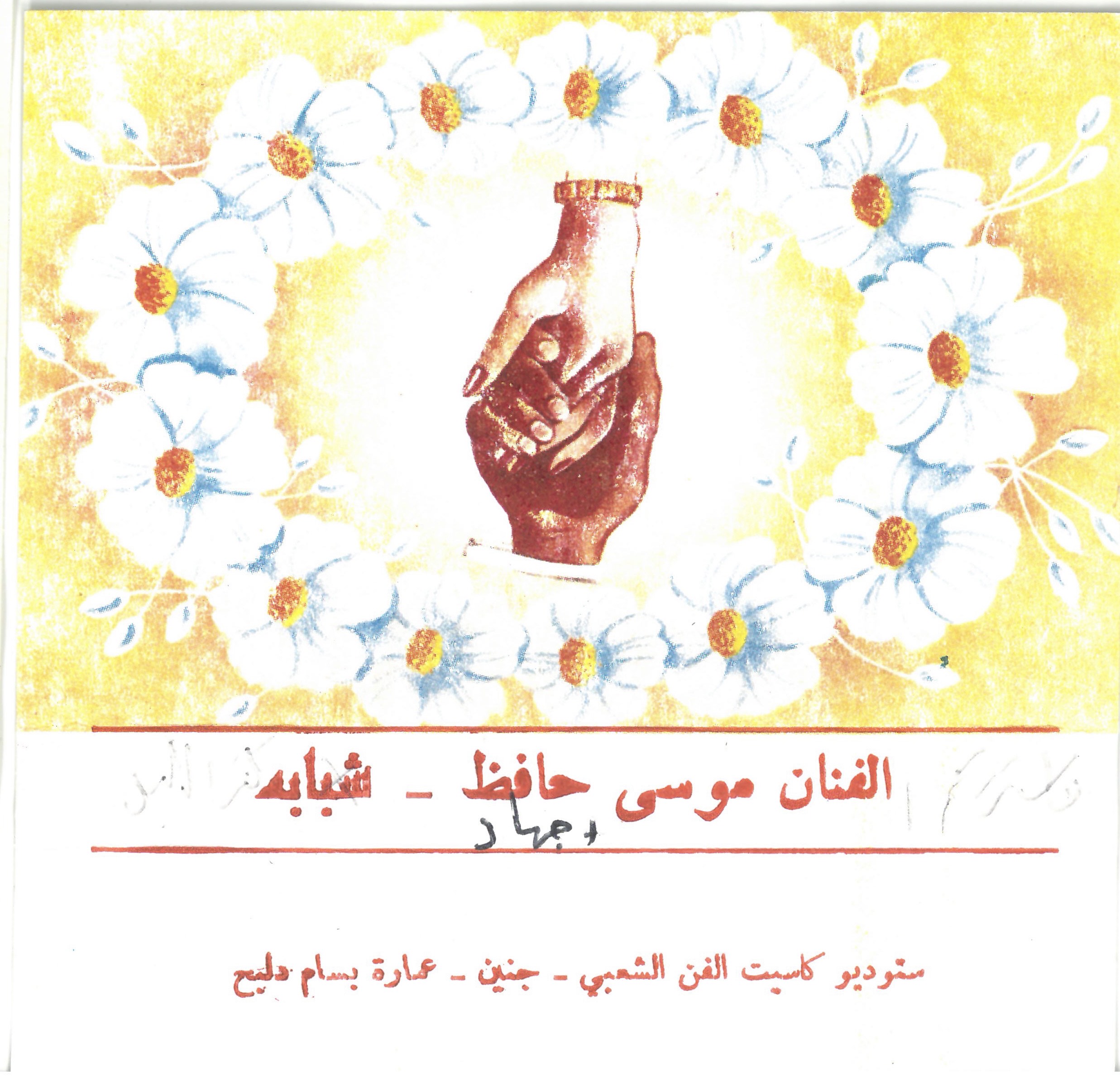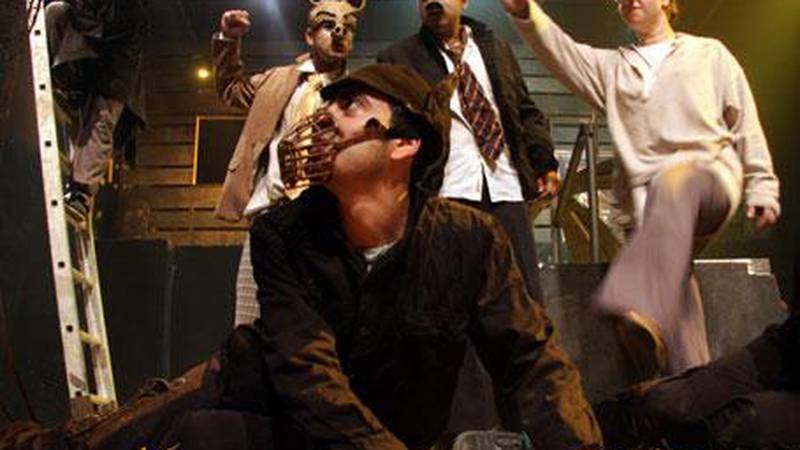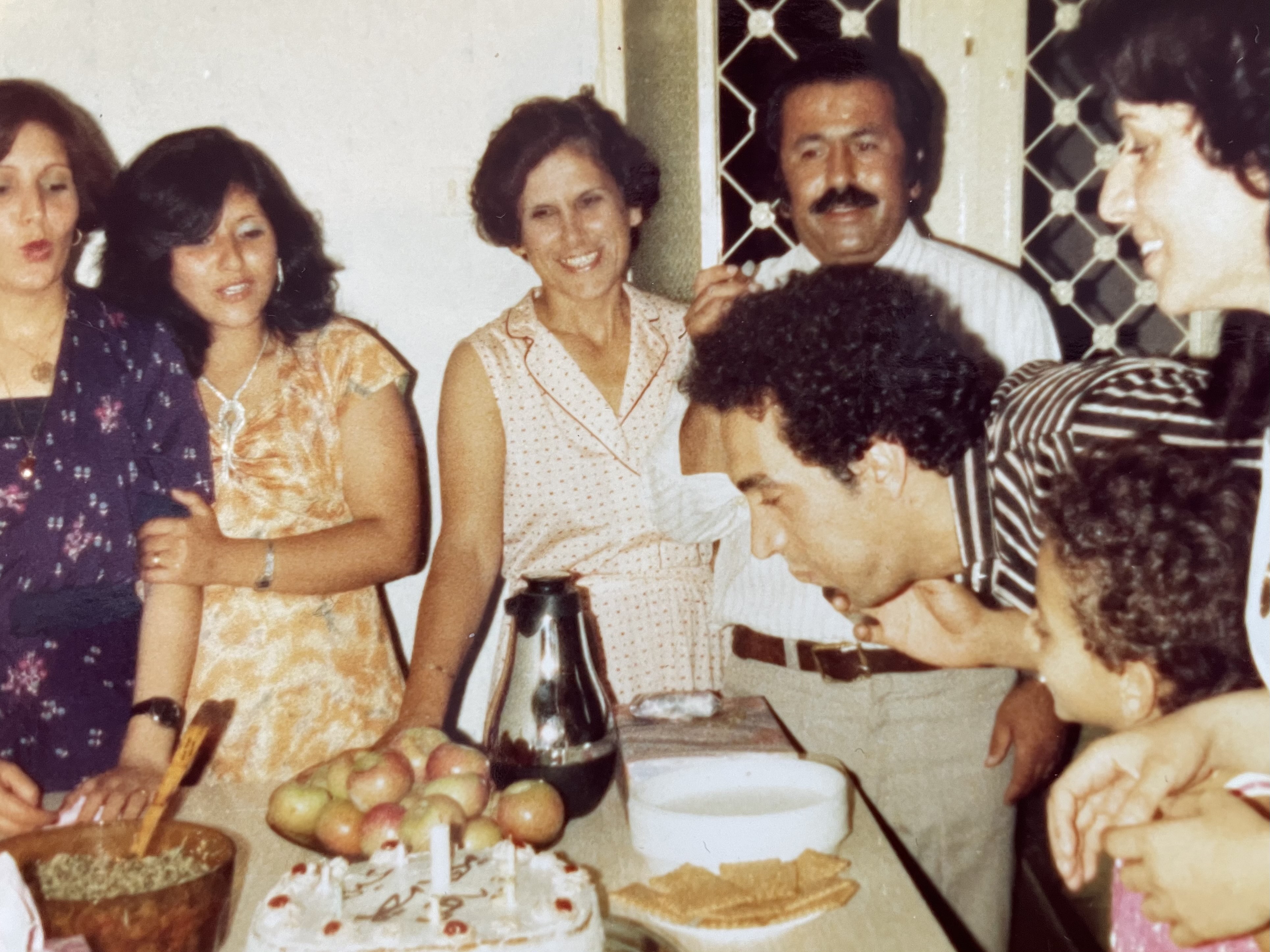Majazz Project / Palestine Sound Archive: Mo’min Swaitat on archiving, theatre, and cultural preservation
Natalia Dembowska
Back in June, Waassermeloun invited Mo’min Swaitat to present his archiving project called Majazz / Palestinian Sound Archive. It took place at Rocas in the heart of Luxembourg City. Although the project focuses mostly on Palestinian music, it also includes the works of other Middle Eastern and global South - particularly Kurdish, Syrian, and Iraqi - artists placed within their cultural context and history. During the event, Mo’min played some vinyls from his massive collection to grant the audience an opportunity to listen to music they may never have heard before, mainly from the ‘60s to the ‘90s. Jazz, funk, disco, acoustic, spoken word, talks, and discussions. It was the first time that the project was presented in Luxembourg, and we all had a very special time, united in the celebration of Palestinian culture through a medium we all share easily - music.


Mo’min Swaitat is a Palestinian actor, artist, and director born in Jenin. He grew up during the Second Intifada (2000-2006), witnessing violence and funerals as a young boy:
“My family originally are refugees from Haifa. They were forced to move out of their homes in 1948 when the Nakba (catastrophy) happened. I was trained at the Freedom Theatre when I was a teenager, under Juliano Mer Khamis, my mentor. He was 100% Jewish, 100% Palestinian actor, activist, thinker, philosopher, as he described himself. Most of my art career (visual arts, theatre, film) has been shaped by my time there. Juliano was the founder of the Freedom Theatre and was later assassinated. That’s when my life completely shifted. I didn’t feel safe to stay and work in the art industry in Palestine for many reasons linked to the colonial israeli state, and the Palestinian Authority, so closely tied to the israeli. It is not a safe space for artists, so I decided to move out of Palestine in 2011, and I started my study at the London International School for Professional Performing Art - LISPA. After it moved to Berlin, it changed its name to ART HOUSE. I tried to establish my life in London, but also to keep my connection with Palestine, with my memories, family, and friends, so I went back and forth a lot in the last 11 years. I have directed many plays in the Freedom Theatre, and in London as well, worked on a lot of community-based projects. I have worked in different theatre companies and the theatre school in Palestine. So I've been working all this time between London and Palestine, basically. I would consider myself a Palestinian, London-based actor, researcher, archivist, and writer.”
The Freedom Theatre, founded in 2006, provides a platform for actors to express themselves. Mo’min spoke extensively about the complex narratives surrounding Palestine's history. His own story intertwines with the history of Palestinian theatre. As he shared his personal story of a Palestinian actor, he stressed the importance of theatre as a tool for social change and cultural preservation, with its transformative power in shaping the lives of the Palestinian youth. For Mo’min, the power of storytelling helps shape our understanding of the past and informs our actions toward the future.
![Mo’min Swaitat performing at the Freedom Theatre as the Caterpillar in Alice and Wonderland [Jenny Nyman]](https://freight.cargo.site/t/original/i/3c7aa874ea35f02029a4716bcfbf595165688faac76df65454bb60ed15cd4fa7/IMG_9104.jpg)



“It's not something usual for people in Palestine to go and study theatre. When I started acting school in Jenin camp I was at the first-ever acting school in the north of the West Bank in the first group of the Freedom Theatre. There are older generations of Palestinian actors and the very first access to acting started in Jerusalem, in the National Theater in Palestine. But I'm talking about a real acting school, a modern acting school - we didn't have this as an option when I was growing up in the West Bank. I always dreamt of being an actor, and when I was 13, the Second Intifada started - one of the most condensed and very heavy violence. And it was, it was complete violence. In 2000 when I was 13, kids weren’t able to go to school for years and years, almost four years. Cities were completely demolished and shut down. Houses were bombed every day, many funerals, many young people being killed. 2000 was the example of what israel is, its drastic violence, its colonial history. But with the new genocide, israel has pushed it to a different level. When I grew up in Jenin, it was already exactly what you see on TV today, it was already happening in 2000. So there was no dream for us as kids. You know, the only dream for me was to be an actor. And this was almost stolen, it was almost gone because there was no school anyway, there was no life, no social life. There was no chance to see, nothing happening. The only things that were happening were funerals, murders, clashes, and bombings, and, air strikes, assassinations and executions on the street. So I grew up seeing all of this, witnessing all of this, with my own eyes, as a kid in Jenin, as a 13 year old.”
In one of his trips going back to Palestine in 2019, Mo’min discovered over ten thousand old tapes and recordings in Jenin. He decided to bring them all back and digitise them to share the music with others. Some of these were never released, held back and censored by israeli army archive before the wider audience could have a chance to listen to them. He felt a sense of purpose to showcase and archive the tapes, and so in 2020, he launched Majazz Project / Palestinian Sound Archive. A Palestinian-led record label and research platform. He started organizing events at different venues, and after putting it all in the context during talks and discussions, he played his collection: sampling, remixing, and reissuing vintage albums, amplifying the richness and diversity of Arabic culture and its musical heritage. A party unintended to be a party, but where everyone eventually ended up dancing. And it was at one of these parties in London around three years ago, that Mo’min met Gabrielle Antar, who was the one who invited him to Luxembourg to present his project to the locals. Shoutout to her, and many others at Waassermeloun who take action against colonial activity, white washing, and racism, as they strive to re-shape the western mindset.
I asked whether Mo’min aimed to educate the audience, sensitize them towards his culture. But he said his aim is not to educate anyone at all. That he no longer feels the need to explain himself to others. It’s not his responsibility, and he doesn’t seek to convince anyone of anything. He aims to preserve and share Palestinian music and stories through his archive, theatre, and film work, highlighting the stories of musicians and artists who have been killed or jailed. He wants to produce high-quality work that speaks to his experiences as a Palestinian artist and actor. Through the archive, he gets to preserve his Palestinian heritage. He emphasized the importance of preserving one’s cultural identity through art, particularly in places like Palestine, where artists face political assassination or jail time.
Mo’min plans to release a book of translated Palestinian music tracks with original artwork to help people connect more with the archive. He wants to share more Palestinian music and poetry to expand the understanding and appreciation of Palestinian culture. There’s historical and cultural significance behind the sounds made through the specific instruments, such as the bamboo flute made with honeycomb.


Another edition of Majazz / Palestinian Sound Archive will take place on 2 August in Roodkapje, near the Central Station in Rotterdam, NL. Mo’min and his guests will dive into a celebration of culture from the extensive archive of cassettes and vinyl records from Palestine and beyond, spanning everything from field recordings of Bedouin weddings to revolutionary albums from the First and Second Intifadas, instrumental tracks, poetry, soul, folk songs and jazz.
Mo’min considers himself a storyteller, inspired by other Palestinian storytellers of previous generations. This archive is a way of celebrating his culture and strengthening his sense of belonging to it. If you want to know, hear, see, and feel more of Palestine, make time for this extraordinary evening. This magical time of musical unison will open your mind and heart, offer you a totally new experience, and perhaps make you re-think certain toxic narratives, so deeply rooted in the western culture.
Photos provided by Mo’min Swaitat


